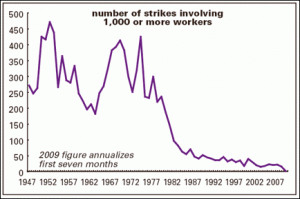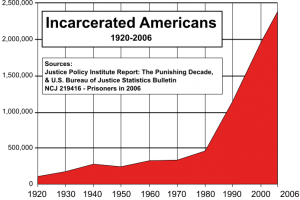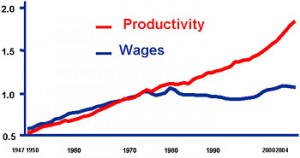We all have an identity, or rather, we all have identities. You may have a religion, a country, a profession, and so on. A Buddhist American Accountant female bisexual Patriots fan.
And so on.
Our identities are both accidents and predetermined. They are accidents of birth–the body we are born with, where we are born, who are parents are; the nature (the body, including the brain) and the nurture (the conditioning we receive through our lives and the physical changes our lives impose on us–starting with nutrition. Few things will screw you up for life faster than bad nutrition as a child).
We take these identities to be who we are in different contexts. You are never more your nationality than when in another country, for example: ex-patriot communities can be very strong and if there aren’t a lot of you, suddenly just coming from the same country is a very strong tie. As a teenager in Bangladesh, I experienced this first-hand. Every Canadian was a potential pal. Anyone who spoke English and was from a western country ranked close.
Within our own countries, we often identify first by what our work is: The first question we ask others is usually, “So, what do you do for a living?” We assume this is important.
One can base their identity on skin color or gender–or the rejection of gender norms.
Identity is often strongest if the identity is in conflict with society. To be gay in 1950, or Russia today, is defining. To be a public cross-dresser matters. To be dark-skinned in America gets you a ton of unpleasant attention, to be visibly Muslim in Germany the same. Some identities mark you out as a safe target for certain types of aggression: transgenders, women, and black males, for example.
The more people treat you as an identity, the more you either become that identity or react against it. For every gay who makes that integral to who they are, there is one who thinks it shouldn’t be so important, who wants to be recognized for something else. The same for women or those whose skin color isn’t the norm in their country, and so on.
To be proud of an identity one didn’t earn is an odd thing. People who are proud of their heritage always strike me oddly: You didn’t chose your parents or ancestors, of what is there to be proud?
Most people who are religious just belong to their parents’ religion and don’t take it very seriously. If they’d been born in a different religion, they’d be at the same level of engagement. Again, what is the source of pride?
Likewise, to be proud of your biologically and socially assigned gender seems odd. Did you choose to be male or female? Even if your society has norms that must be met to be a “real man” or “real woman,” well, you just did what almost every other man or woman does.
Proud of your parents? Well, I guess, but, ummm, if anything it should go the other way.
Identity, too often, is little more than tribalism.
It is, however, an advanced form of tribalism.
Humans are wired to operate in groups of up to about 150 people. That’s as many people as most individuals are able to treat as individuals.
You can treat those people as individuals, you can care about them and look after them as individuals. You can trust them because you know each of them individually
To care about more people, you must have an identity in common which allows you to see them as part of your band, and to trust them.
Tribes (the step above bands) did this. Nations did this. Religions did this. The Zeus cult was used to allow people to trade safely together, since they worshiped (and feared) the same God.
To have a shared identity is to belong to a community. There are shared communities everywhere. One woman I know travels the world and finds friends and places to stay because she is a long-time fan of a particular band, and knows other fans.
Identity can become community, and members of communities can care for each other.
The strength of shared identities can pretty much be determined by looking at how much they care for each other or trust each other.
Shared identities leading to caring communities (which can mean caring enough to pick up weapons to defend each other) is the bright side of identity.
The dark side, of course, is that anyone you don’t share an identity with is someone you don’t owe as much care to.
“Not one of us” is one of the most dangerous statements in the world; ostracism is often death. You can see it today in all the refugee deaths: They aren’t “us.” You can see it in the refugee camps, statements of, “We aren’t going to let them become one of us.”
We find ourselves in four types of games. Me against the world. My group against the world. Humanity against the world.
And then there’s “We are the world.”
It is jejune to act as if me against the world, or my group against the world, or even humanity against the world doesn’t work. North Americans and Europeans have higher standards of living than most others because they out-competed many other groups, and that includes “wiped entire other groups out.” They won their wars. They ruled or bullied almost every part of the world at one point or another.
As individuals we can certainly create “good” lives by out-competing everyone around us. Many people extend this to their own families.
And humanity can use the entire world as its preserve, without caring much (if at all, in practical terms) what happens to other life forms, including ones like dolphins, which are clearly sentient. We can “win” from this, and we have.
But we can also lose by doing this, because we are not isolated from other people, other animals, other plants. Heck, from microbes (especially not from microbes).
How we treat other people comes back to haunt us. We hurt them, they hate us. We make them poor, they pollute, that pollution eventually hurts us. We deny them medicine, they get sick, that sickness pool eventually hurts us.
We treat other beings and, indeed, the unliving world, as something other than us, not caring for them, or for it, and we get climate change. We pollute, which is a win for the industries who do it, and we suffer huge levels of chronic illness.
Etc.
We do this because we do not identify with other people. America is against Russia, against China. India is against China. Muslims and Christians are against each other. The rich are against the poor.
Blah, blah, blah.
We certainly don’t give a damn what happens to other animals, not in any practical sense; the number of large fish in the ocean, for example, has dropped about 90 percent since the 30s, and the 30s had already seen huge drops. The Grand Banks, off the Canadian Maritimes, in the 15th century, were so rich with fish you could simply drop a bucket in and come up with fish. Today that fishery is gone.
We are killing trees that create the oxygen we need to live. The ocean’s oxygen cycle is in danger.
Our identities, our refusal to identify with everyone, and especially with everything, is going to wind up killing a lot of us. A hell of a lot of us.
But I want you to consider this another way.
What sort of people do you like being around?
I will posit that most people enjoy being with other people who are happy. People tend to be happy when they are healthy, have enough stuff, and do work they enjoy.
Happy people are just way better to live with. Happy people also don’t commit nearly as much violence. Security for others is security for us. Happiness for others is happiness for us. People who are prosperous in the truest sense, which is to say, people who are not scared of losing their prosperity, are generous. (Most people in the world are not prosperous in that sense.)
Identity links us to others, but it also cuts us off from others. We can win from that, as individuals and groups, but we are at the point now, due to limited resources and carrying capacity, where we cannot win as a species that way.
And perhaps we have always lost as a species, and as individuals, if you consider the highest good to be love. For those who truly love, want the best for others.
I recognize in identity the attempt to connect with others, to overcome human limitations. I hear in it the attempt at human choice, when our identities are not the ones approved of by our communities.
But I believe, in the end, that if someone’s most important “identity” doesn’t allow them to identify with all life, that identity has become mal-adaptive to our survival.
Identifying with all life doesn’t mean tolerating all behaviour, rather the contrary, by the way. The problem we have can be boiled down to selfishness, greed being a species of selfishness.
That doesn’t mean people have to live like crap; that’s a myth. Yes, we will need to reduce carbon expenditures and environmental impact and make room for other species, but that can be done in a way that is win/win because we live in ways that are terrible for our health, for our sense of meaning, and for our happiness. We will have to live differently, not worse.
That’s another article, though, but to want to do the right thing, you have to believe it is the right thing. If your identity doesn’t include the rest of humanity, or the rest of life as worthy of life, and a good life, you will not and cannot do the right thing.
If you enjoyed this article, and want me to write more, please DONATE or SUBSCRIBE.




